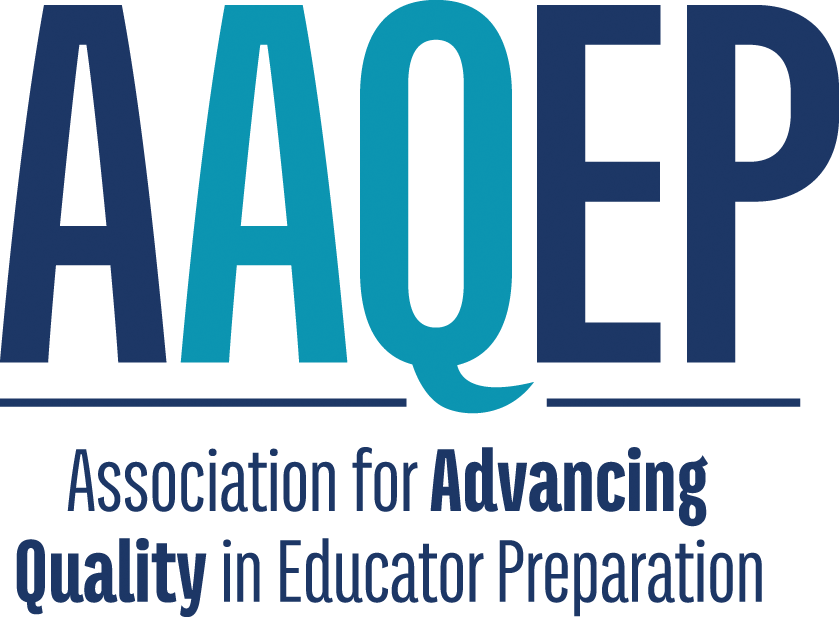
Master’s of Early Childhood Education
Online
Complete your studies on your own time
Finish in 10 months
Average completion time
Year-round enrollment
Our admissions team reviews applications year-round

Take the first step in your National University Journey

Raise Your Hand if You’re Ready to Make a Difference in Student Success
Degree:
Master’s of Early Childhood Education
Application:
$0 application fee. No essays/exams.
Are you an early childhood educator ready to become a difference maker working with young learners? If you’d like to deepen your knowledge and expand your role in building a foundation for educational settings where young students can thrive, National University’s Master of Early Childhood Education degree is designed to help you become an agent of change.
Our program is designed to prepare you to become a director, leader, advocate, and/or to work in the field of higher education to prepare early childhood teachers. Through deep reflection on current issues, research, and trends in the field, you’ll have an opportunity to explore the complex history and unique role of early educators.
NU’s curriculum is taught by faculty who hold terminal degrees in early childhood education and are dedicated to sharing their expertise, passion, and strong belief in supporting student success. Throughout the program, you’ll engage in opportunities, based upon Universal Design for Learning (UDL) theory, to gain the skills and knowledge to advance and advocate for the field of early childhood education.
Degree Requirements
To receive a Master of Early Childhood Education students must complete 45 quarter units of graduate work. ATP 600 and ATP 699 must be taken at National University. A total of 4.5 quarter units of graduate credit may be granted for equivalent graduate work completed, as it applies to this degree and if the units were not used in earning another advanced degree.
National University awards credit in quarter units, with each academic year divided into four 12-week quarters.
Each quarter is made up of three 4-week classes, with one class per month. Under the current policy, 4.5 units of credit are awarded for courses.
Requirements for the Major
10 Courses
Inspired Educator
4.5 Quarter Units
Explore research literature on inspired and effective teaching to inform development of personalized teaching growth plan. Select two inquiry questions to explore during the specializations of choice. Create digital portfolio for program. Required first course in program.
The Early Childhood Educator
4.5 Quarter Units
Prerequisite: ATP 600, or MAE 610
Examines the critical role of the early childhood teacher leader. Analysis of beliefs and ethics on quality care. Explore history of social policy on the field of early childhood. Develop plan to support professional growth as an ECE Leader. Addresses NAEYC Advanced Standard 6: Growing as a professional.
Current Issues in ECE
4.5 Quarter Units
Prerequisite: ATP 600, or MAE 610
Focuses on current issues in early childhood education and implications for the field. Conduct a literature review and develop a research agenda.
ECE Learning & Development
4.5 Quarter Units
Prerequisite: ATP 600, or MAE 610
Focus is on current research in early childhood learning and development. Deepen understanding of young children thinking skills. Examine impact on curriculum and the educational community from multiple perspectives.
Best ECE Teaching Practices
4.5 Quarter Units
Prerequisite: ATP 600, or MAE 610
Focus on research based effective teaching strategies for young children. Examines opportunities for integrating curriculum across content areas. Close attention paid to balancing standards and Developmentally Appropriate Practice.
Collaborative Partnerships
4.5 Quarter Units
Prerequisite: ATP 600, or MAE 610
Examines interpersonal communication skills required for early childhood teachers and leaders. Examines strategies for enhancing parent-professional partnerships, consultation skills and issues relating to interactive teaming and the larger community.
Inclusive ECE Practices
4.5 Quarter Units
Prerequisite: ATP 600, or MAE 610
Emphasis on variations in child development, identification of disabilities and the implications of cultural and linguistic diversity. Examines inclusive early childhood programs, strategies for adaptions and accommodations to meet the social, emotional, and academic needs of all children who are at-risk or have special needs.
Foundations of Adult Learners
4.5 Quarter Units
Prerequisite: ATP 600, or MAE 610
Focus on adult learning theories and principles of personal leadership to meet the specific needs of ECE leaders. Foundational knowledge and best practices for working with diverse learners in various capacities covered. Particular attention paid to the different roles and responsibilities for effectively facilitating adult learners in the field of ECE.
Foundations of ECE Advocacy
4.5 Quarter Units
Prerequisite: ATP 600, or MAE 610
Examines a variety of strategies to advocate for and advance the Early Childhood Education profession. Includes grant writing skills, awareness of public policy issues, and effective political action strategies.
Capstone/Portfolio
4.5 Quarter Units
Prerequisite: Students must complete all major core and specialization courses prior to enrolling in the capstone course.
Provide evidence of increasing depth of knowledge in instruction, assessment, and digital learning skills for research, curriculum design and professional growth by selecting and defending artifacts produced throughout the program. Grading is H, S, U only. Course is eligible for In Progress (IP) grade.
Career Outlook
Data Source: The career outcomes data presented is sourced from Lightcast, which provides insights based on real-time job postings, public datasets, and analytics. Lightcast derives its data from sources such as the Bureau of Labor Statistics (BLS), the Quarterly Census of Employment and Wages (QCEW), and the Occupational Employment Statistics (OES). While accurate and reliable, this data reflects general labor market trends and may not represent individual outcomes or specific local conditions. For more details on Lightcast’s methodology, visit their Data Overview.
Here are some careers this degree could prepare you for:
Please select the state you will work in to view job data in your area
- Top Jobs in this field
- Median Salary
- Job Openings
- Education Administrators for Preschool and Childcare Programs
-
$52,049
avg. salary (USA) -
6,974
job openings (past yr.) past year
ALl of USAMost Desired Skills
- Preschool Education
- Child Development
- Early Childhood Education
- Curriculum Development
- Developmental Psychology
- Marketing
- Lesson Planning
ALl of USATop Companies Hiring
- KinderCare Education
- Valvoline
- Learning Care Group
- Learning Experience
- YMCA
- La Petite Academy
- Childcare Network
- Education Administrators for Elementary and Secondary Schools
-
$102,866
avg. salary (USA) -
25,291
job openings (past yr.) past year
ALl of USAMost Desired Skills
- Student Services
- Special Education
- Curriculum Development
- Academic Advising
- Student Information Systems
- Office Equipment
- Data Analysis
ALl of USATop Companies Hiring
- Clark County School District
- Lone Star College System
- Uncommon Schools
- Maricopa Community Colleges
- Broward County Public Schools
- Ulster Boces
- Sodexo
- Instructional Coordinators
-
$75,146
avg. salary (USA) -
23,176
job openings (past yr.) past year
ALl of USAMost Desired Skills
- Instructional Design
- Curriculum Development
- Project Management
- Adult Education
- Learning Management Systems
- Educational Technologies
- Special Education
ALl of USATop Companies Hiring
- Cengage Learning
- Pearson Education
- Stride K12
- Chegg
- Brevard Public Schools
- Amazon
- Childcare Network
Program Learning Outcomes
As a graduate of National University’s MA in Early Childhood Education, you’ll understand how to:
- Evaluate effective early childhood practice using critical thinking skills, active self-reflection and professional standards.
- Examine the impact of evidence based practices and policies on children, family, schools and community.
- Demonstrate effective leadership skills to promote and advance the field of early childhood education for children, families, educators and community.

Admissions
Transfer Students Welcome
Enrolling in a university is a big decision. That’s why our dedicated admissions team is here to guide you through the admissions process and help you find the right program for you and your career goals.
To that end, we’ve simplified and streamlined our application process, so you can get enrolled in your program right away. Because we accept and review applications year round, you can begin class as soon as next month, depending on your program and location of choice.
Learn more about undergraduate, graduate, military, and international student admissions, plus admissions information for transfer students. You can also learn more about our tuition rates and financial aid opportunities.
To speak with our admissions team, call (855) 355-6288 or request information and an advisor will contact you shortly. If you’re ready to apply, simply start your application today.

Pricing
The cost shown is the estimated price for this degree. Many National University students are eligible for scholarships or financial aid, which may substantially lower a degree program’s cost.
You can visit our Tuition Estimator to see what scholarships and discounts are available and get more information about expected costs. You can also start the application process and receive counseling from our Enrollment team on the costs of your degree
Scholarships and Financial Aid
National University is dedicated to making higher education affordable, as well as accessible. Through NU scholarship offerings, eligible students are able to reduce the financial burden of college, start classes sooner, and finish their programs faster while focusing on achieving their goals.
Accreditations

The Western Association of Schools and Colleges (WASC) accredits public and private schools, colleges, and universities in the U.S.


Why National University?
We’re proud to be a Veteran-founded, San Diego-based nonprofit. Since 1971, our mission has been to provide accessible, achievable higher education to adult learners.
Today, we educate students from across the U.S. and around the globe, with over 245,000 alumni worldwide.

“National University has impacted my career. You can immediately apply what you learn in class to your business.”
Francisco R.,
Class of 2016
What makes a degree
with National University unique?
Free Tutoring Sessions
Access personalized tutoring sessions at no cost — empowering your learning.
Online
Flexibility meets quality education with our online learning option.
24/7 Support
Get assistance anytime, anywhere with our round-the-clock support services.
Military Friendly
Committed to serving those who serve — diverse resources and support for veterans and family. Military and Veteran Admissions.
Mentoring Network
Individual student and alumni career guidance, professional development opportunities, and customized career support.
Transfer Students Welcome
NU makes it easy to get your degree, even if you started it with another university. Learn more about transferring to NU.
Accelerate Your Career With NU
At National University, you’re part of a family. As a student, you’ll have the support of staff, faculty members, students, and alumni who will be there with you every step of the way, cheering you on as you pursue your goals.
Our network of 245,000 alumni is a large global community that provides our graduates with the professional connections to get a leg up in your new career.

FAQs
NU’s curriculum is designed to prepare you to be a passionate agent of change in the field. You’ll have the opportunity to choose your own area of interest to explore in depth throughout your studies.
Our program also follows the guidelines of the National Association for the Education of Young Children (NAEYC), a community of nearly 60,000 members committed to delivering on the promise of high-quality early learning. NU’s MA in Early Childhood Education also meets the requirements for the CA Child Development Directors Permit, so you’ll be set for success when you graduate.
Additionally, you should know NU’s program can be completed in as few as 10 months, so you can become an agent of change in early childhood education in less than a year.
National University’s MA in Early Childhood Education is designed to empower you to point your career in a number of directions. You can follow a teaching path and make a difference in the classroom, or you can pursue a leadership role to help shape policy at the supervisor level. You might also choose to work in social work or human services, where there are myriad opportunities in state agencies, hospitals, residential care facilities for the disabled, and at mental healthcare providers. Of course, you may also choose to pay it forward by teaching early childhood development at a community college or four-year university.
Just a few of the job titles our MA in Early Childhood Education can prepare you for include:
- Preschool Teacher
- Kindergarten Teacher
- Early Childhood Teacher
- Director of Early Childhood Education
- Preschool Director
Based upon job postings reviewed in November 2021, some of the companies hiring early childhood education professionals include:
- EducationCrossing
- University of Phoenix
- AlphaBEST Education
- Bright Horizons
- AdventHealth Central Texas
- Sylvan Learning
* SOURCE: Emsi Labor Analyst- Report. Emsi research company homepage at https://www.economicmodeling.com/company/ (Report viewed: May 2, 2022. DISCLAIMER: The data provided is for Informational purposes only. Emsi data and analysis utilizes government sources to provide insights on industries, demographics, employers, in-demand skills, and more to align academic programs with labor market opportunities. Cited projections may not reflect local or short-term economic or job conditions and do not guarantee actual job growth. Current and prospective students should use this data with other available economic data to inform their educational decisions.
Additional Resources
- What is Early Childhood Education?
- What Can You Do with an Early Childhood Education Degree?
- Why Is Early Childhood Education Important?
- The Early Childhood Credential: Online Certificate Option
- Bachelor of Arts in Early Childhood Education (BAECE)
- Bachelor’s in early childhood development with an Inspired Teaching and Learning Preliminary Multiple Subject Teaching Credential
Program Disclosure
Successful completion and attainment of National University degrees do not lead to automatic or immediate licensure, employment, or certification in any state/country. The University cannot guarantee that any professional organization or business will accept a graduate’s application to sit for any certification, licensure, or related exam for the purpose of professional certification.
Program availability varies by state. Many disciplines, professions, and jobs require disclosure of an individual’s criminal history, and a variety of states require background checks to apply to, or be eligible for, certain certificates, registrations, and licenses. Existence of a criminal history may also subject an individual to denial of an initial application for a certificate, registration, or license and/or result in the revocation or suspension of an existing certificate, registration, or license. Requirements can vary by state, occupation, and/or licensing authority.
NU graduates will be subject to additional requirements on a program, certification/licensure, employment, and state-by-state basis that can include one or more of the following items: internships, practicum experience, additional coursework, exams, tests, drug testing, earning an additional degree, and/or other training/education requirements.
All prospective students are advised to review employment, certification, and/or licensure requirements in their state, and to contact the certification/licensing body of the state and/or country where they intend to obtain certification/licensure to verify that these courses/programs qualify in that state/country, prior to enrolling. Prospective students are also advised to regularly review the state’s/country’s policies and procedures relating to certification/licensure, as those policies are subject to change.
National University degrees do not guarantee employment or salary of any kind. Prospective students are strongly encouraged to review desired job positions to review degrees, education, and/or training required to apply for desired positions. Prospective students should monitor these positions as requirements, salary, and other relevant factors can change over time.
Back to top